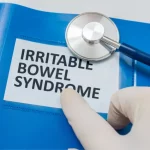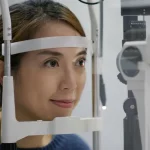
Image Source: Pixabay
Irritable Bowel Syndrome (IBS) is a digestive disorder characterized by constipation, diarrhea, abdominal discomfort, indigestion, along with other symptoms. Symptoms may vary depending on the type of IBS: constipation-predominant, diarrhea-predominant, or mixed. Regardless of the type and the intensity, anywhere between 25 and 45 million Americans suffer from IBS.
The bad news is, there is no cure for IBS, according to Bowel & Cancer Research, but there are treatments. In many cases, sufferers of IBS have to take medication. But if you’re looking for a natural treatment for Irritable Bowel Syndrome, you’ve come to the right place. While the following treatments won’t cure your symptoms, they may eliminate their severity.
1. Diet changes
One of the most common natural remedies for IBS that’s suggested is a change in diet. For many, this would make the most sense considering the digestive tract in individuals diagnosed with IBS is often sensitive to certain foods and beverages. If you suffer from irritable bowels yourself, you probably know of at least a few foods that don’t suit your system well.
It’s suggested that IBS sufferers reduce or cut out their consumption of sugary foods and drinks, caffeine, processed foods, and alcohol. Eliminating other ingredients from your diet as you see fit is also important as food triggers may vary from person to person. Incorporating more healthy fats, fruits and vegetables, and whole grains is additionally critical with the diet change.
While some might find the recommended IBS diet too strict for their current lifestyle, making these changes gradually can make the adjustment easier. Even if one only makes minor diet changes over time, these changes are better than nothing.
2. Meditation
While not everyone may be able to trade their medication for meditation, especially in severe cases of IBS, meditation is an excellent alternative treatment for the condition. Meditation might be particularly helpful for those who have frequent flare-ups due to high stress or anxiety.
In the beginning, completely engaging in meditation might be a little difficult or strange. Some might get into the practice immediately while it may take several tries for another to understand the process. Whether you are a novice or expert, engaging in guided meditation, whether with a teacher in-person or via a YouTube video, you’ll be on your way to a more stress-free lifestyle.
3. Exercise
An exercise routine can do wonders both physically and mentally. After all, Irritable Bowel Syndrome can have both physical and mental causes and exasperations from hormone fluctuations to stress. Fortunately, some may find relief from IBS with regular exercise of their choice: cycling, jogging, dancing, etcetera.
Coming up with a workout plan is fairly easy for many. However, what tends to be difficult is sticking to that plan. Deciding how you will motivate yourself to keep that plan is crucial. Consider signing up for exercise classes, paying in advance. You can also set up rewards for yourself for working out or workout with a friend or two to keep you on track with your routine.
4. Hypnotherapy
Meditation isn’t for everyone, and while hypnotherapy isn’t either, many find that it can help them in numerous ways. In terms of IBS, hypnotherapy can be useful to reduce the stress that may be causing or exasperating the condition, to begin with. Hypnotherapy can also help someone with IBS eat healthier or become more serious about their exercise routine.
The goal of a professional hypnotherapist is to alter the state of consciousness of their client by making the right-hand side of the brain (the non-analytical hemisphere) more alert while eliminating the alertness of the left hemisphere. Guiding the relaxation, attention, and concentration of the client, the hypnotherapist has greater control of their sub-conscious mind.
5. Prebiotics and probiotics
In some cases of IBS, an altered gut microbiota may be to blame for the symptoms. For that reason, working on healing the gut by introducing more healthy bacteria into the digestive system can be one way to diminish the severity of Irritable Bowel Syndrome. One can do this by taking prebiotic and probiotic supplements.
Prebiotics are a type of dietary fiber that is crucial for fostering good bacteria in the gut. Probiotics are the good bacteria that you want in your gut. Prebiotics and probiotics can be purchased in capsule, powder, liquid, or tablets. Some supplements contain both prebiotics and probiotics.
It is typically recommended to take prebiotics and probiotics right before, during, or right after eating for best results. However, always follow the directions on the back of your supplement. Reach out to a relevant physician to find the most suitable probiotic strain for you; some strains work for some more than others.
6. Peppermint oil
This last natural treatment for IBS on this list might surprise some people: peppermint oil. Peppermint is great for the digestive system. It may sound counterintuitive to take peppermint oil when you have IBS as some may consider peppermint to be very strong. However, it is actually an anti-spasmodic, meaning that it can help reduce muscle spasms.
While many individuals with IBS are fine taking peppermint oil, some may experience heartburn after taking. To avoid the latter, taking peppermint oil in enteric-coated capsules would be the best option. As you would with any vitamin or supplement, taking the lowest dose of peppermint oil before increasing the dose (if necessary) is important to slowly acclimate the body to the oil.
Conclusion
Although Irritable Bowel Syndrome currently has no known cure, there are fortunately natural treatments out there one can turn to. Diet changes, meditation, hypnotherapy, prebiotics and probiotics, peppermint oil, and exercise are some natural remedies that may help eliminate or reduce some IBS symptoms. Best of all, there is little to no risk in giving these remedies a go. (See also: 6 Gut Health Myths And Misconceptions Debunked)
Even for those who are treating their IBS with medication, utilizing natural treatments can aid with the reduction of the condition. The important thing when treating IBS through any means is taking note of what works and what doesn’t. Trial-and-error is typically part of treating any condition, mental or physical.
About The Author:
Stacey Smith is a freelance health writer. She is passionate to write about women’s health, dental health, diabetes, endocrinology and nutrition and provide in-depth features on the latest in health news for medical clinics and health magazines.




